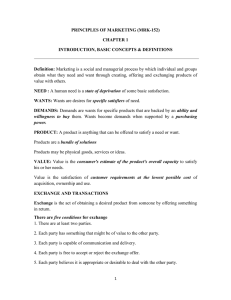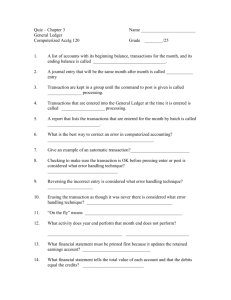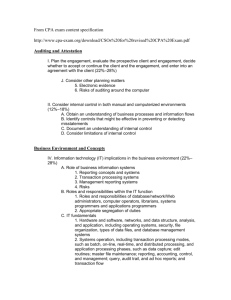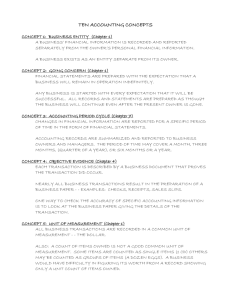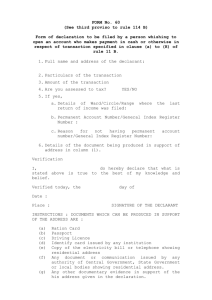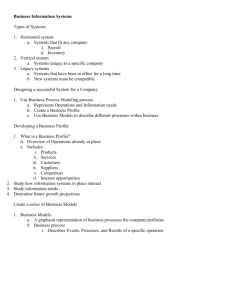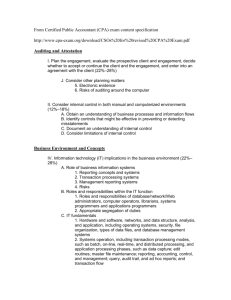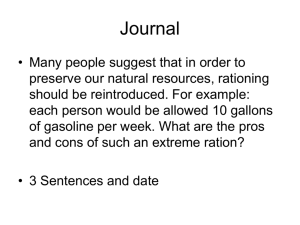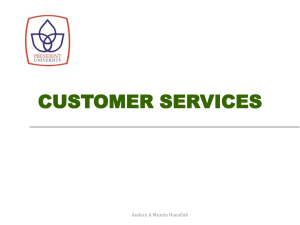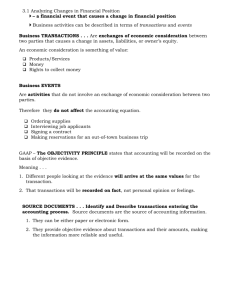RLS 183: Marketing Recreational Services
advertisement
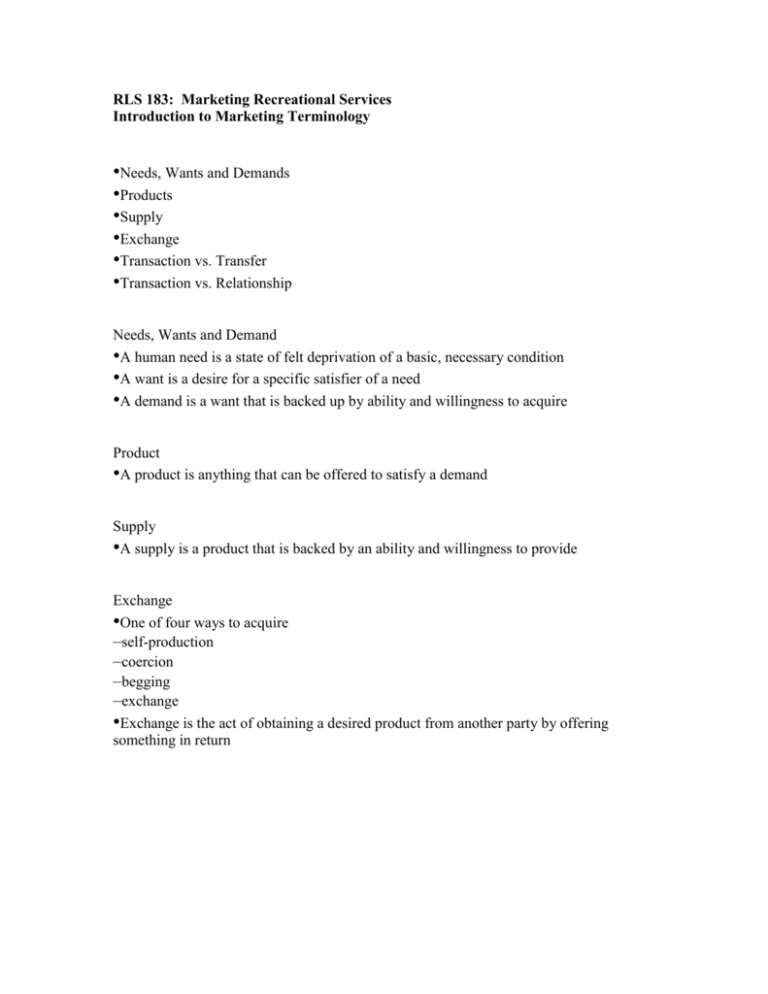
RLS 183: Marketing Recreational Services Introduction to Marketing Terminology •Needs, Wants and Demands •Products •Supply •Exchange •Transaction vs. Transfer •Transaction vs. Relationship Needs, Wants and Demand •A human need is a state of felt deprivation of a basic, necessary condition •A want is a desire for a specific satisfier of a need •A demand is a want that is backed up by ability and willingness to acquire Product •A product is anything that can be offered to satisfy a demand Supply •A supply is a product that is backed by an ability and willingness to provide Exchange •One of four ways to acquire –self-production –coercion –begging –exchange •Exchange is the act of obtaining a desired product from another party by offering something in return Exchange (continued) •Exchange requires –at least two parties –each party has something that might be of value to the other –each is capable of communication and delivery –each is free to accept or reject offer –each feels it appropriate or desirable to deal with the other Transaction vs. Transfer •A transaction is a basic unit of exchange –monetary transaction –barter transaction •A transfer is one-way, such as a gift Transaction vs. Relationship •Transactions are individual occurrences •Relationships are ongoing series of transactions with the same parties Marketing and History •The Production Concept •The Product Concept •The Selling Concept •The Marketing Concept •The Societal Marketing Concept The Production Concept •Holds that consumers will favor those products that are widely available and low in cost. Managers of production-oriented organizations concentrate on achieving high production efficiency and wide distribution coverage The Product Concept •Holds that consumers will favor those products that offer the most quality, performance or innovative features. Managers in these product-oriented organizations focus their energy on making superior products and improving them over time The Selling Concept •Holds that consumers, if left alone, will ordinarily not buy enough of the organization’s products. The organization must therefore undertake an aggressive selling and promotion effort The Marketing Concept •Holds that the key to achieving organizational goals consists in determining the needs and wants of target markets and delivering the desired satisfactions more effectively and efficiently than competitors The Societal Marketing Concept •Essentially the same as the Marketing Concept, but with the following added: …in a way that preserves or enhances the consumer’s and the society’s well-being. Market •Consists of all the potential customers sharing a particular need or want who might be willing and able to engage in exchange to satisfy that need or want Market Types •Need Markets –Weight loss -seeking individuals •Product Markets –People wanting shoes •Demographic Markets –Youth •Geographic Markets –People in California Marketing •A social and managerial process by which individuals and groups obtain what they need and want through creating, offering, and exchanging products of value with others Marketing Management •The process of planning and executing the conception, pricing, promotion, and distribution of products to create exchanges with target groups that satisfy customer and organizational objectives

